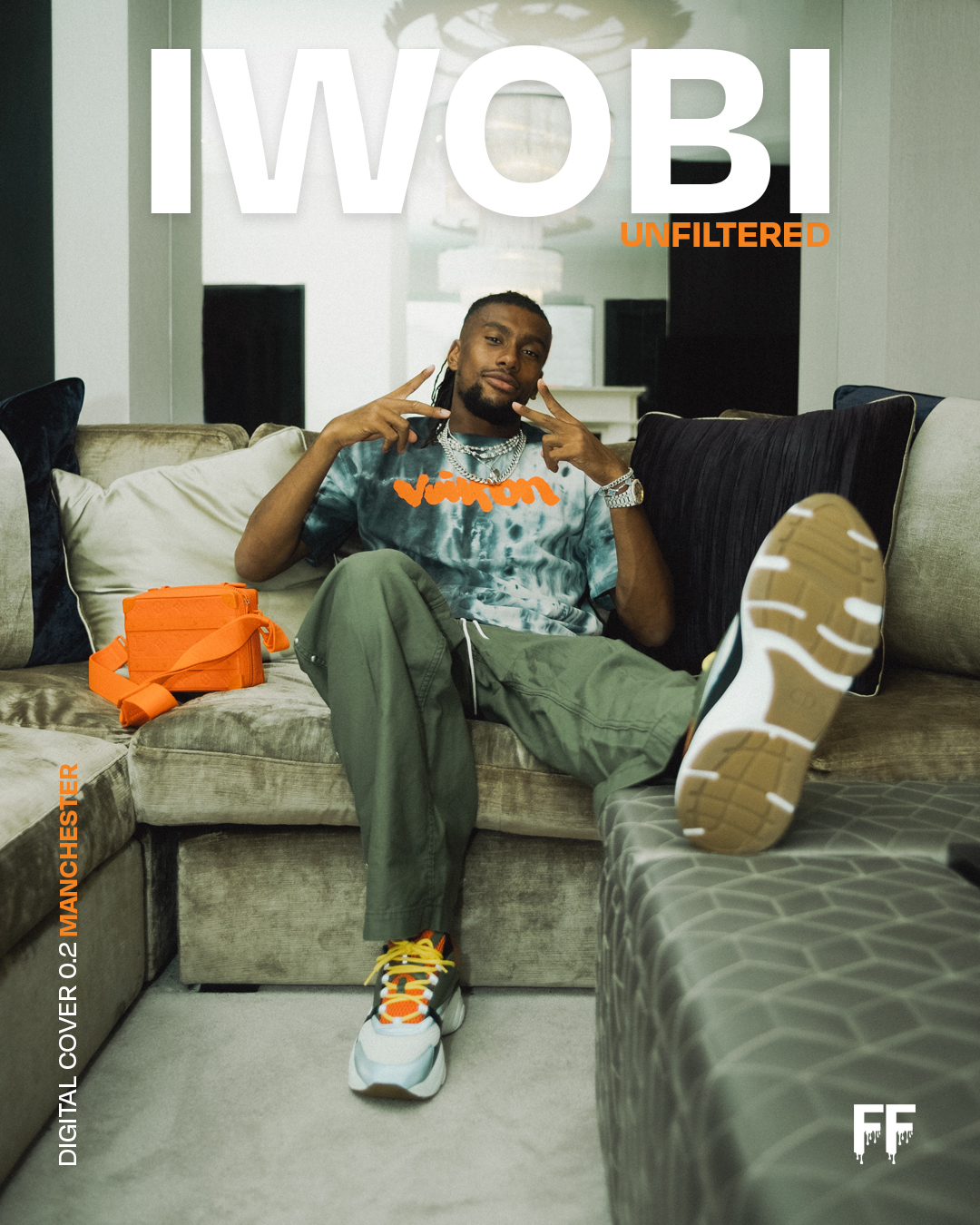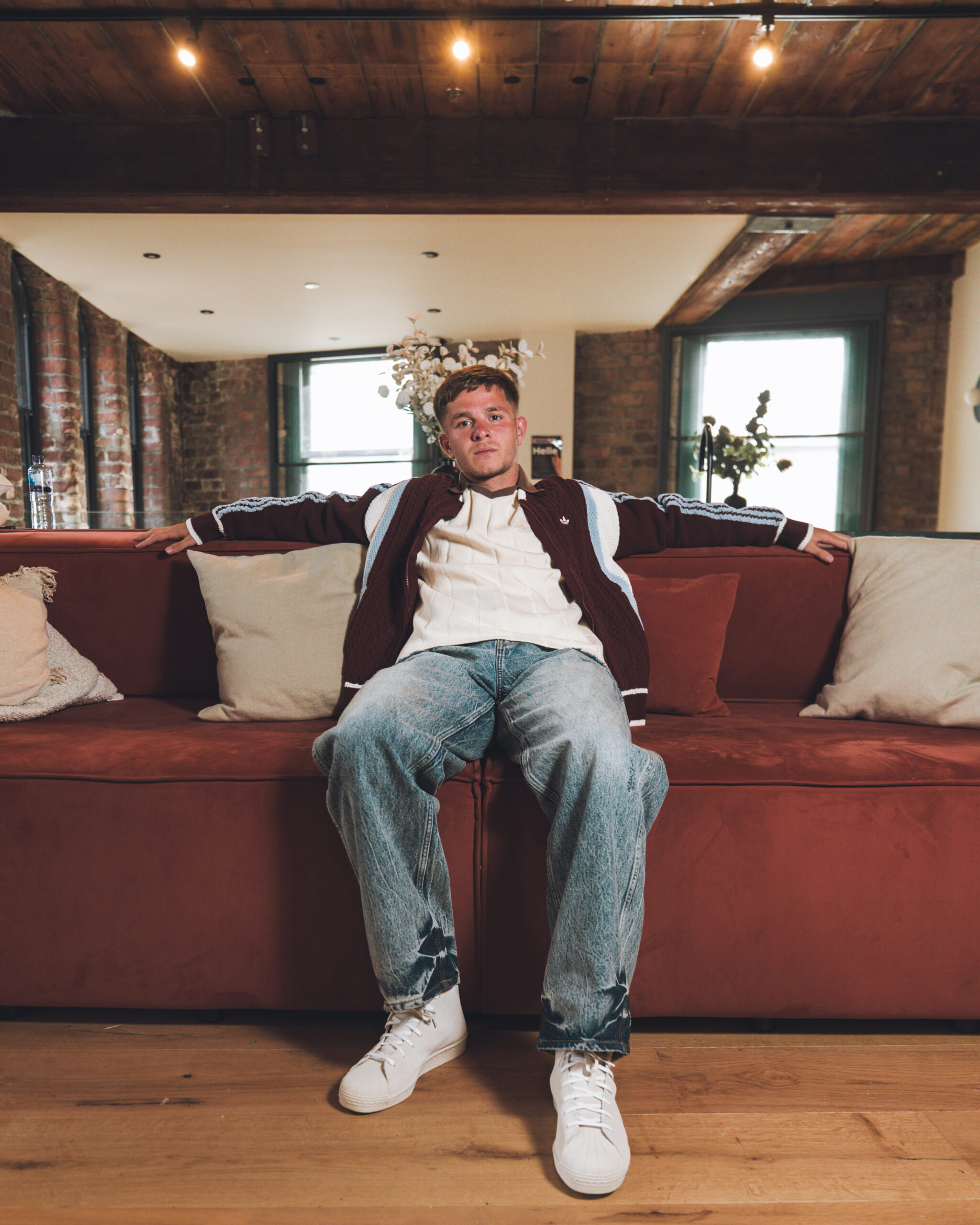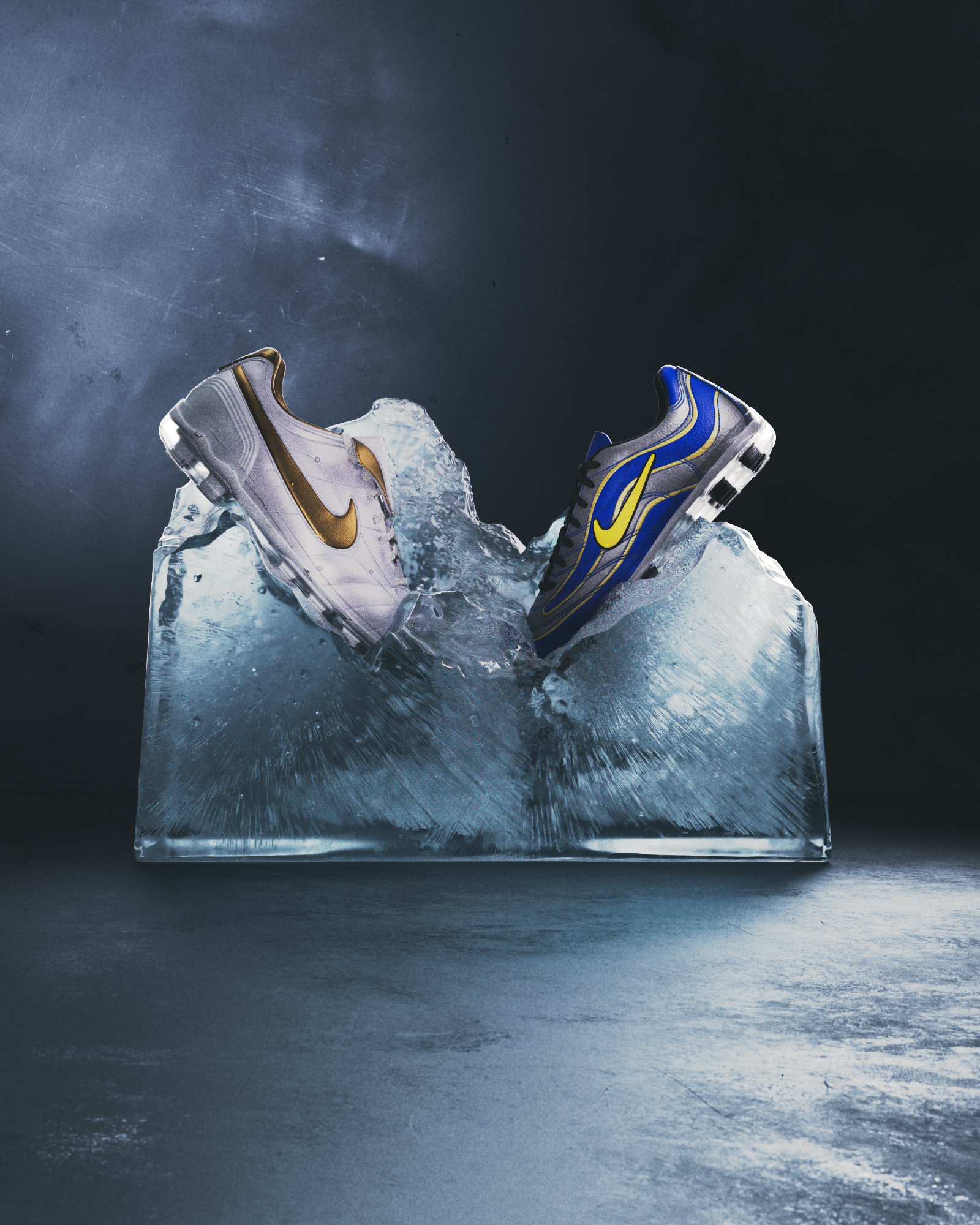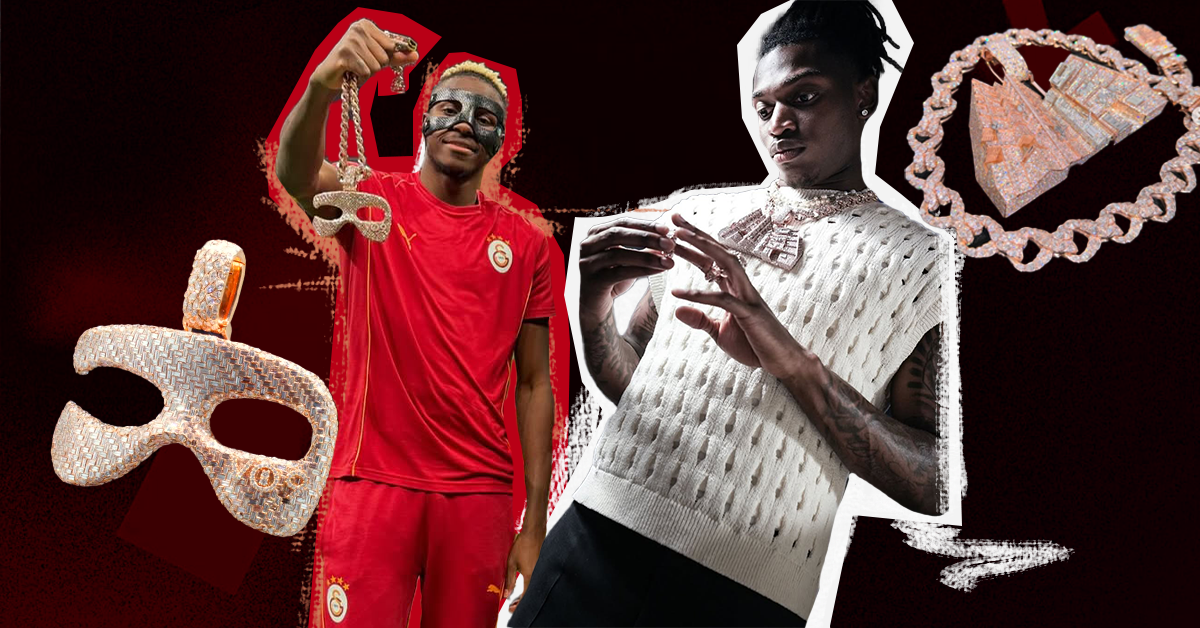“I want to be someone who always tries to bring a smile to people’s faces,” Alexander Iwobi tells me on the legacy he wishes to leave when the time arrives to hang up his boots.
The 26-year-old cuts a relaxed but youthful figure from his Manchester home roughly forty-five minutes from Goodison Park. Assured with his words but never lacking energy with each response he gives, Iwobi strays far from the robotic nature some athletes have become accustomed to, making him one of Gen-Z’s favourite personalities.
The Everton midfielder is speaking just a week after travelling to Belfast to support Emonsi, a multi-sports organisation focused on diversifying sports for ethnic minorities alongside his platform Project 17. “Football has given me the opportunity to enjoy life, so I’m trying to give that back to other people. I’m a normal person as well as a footballer that just loves good vibes.”
“Me especially, I don’t notice how big of an influence we have on people until, for example, I go to Northern Ireland. Sometimes I think they’ll just see me as someone else, but when you go and you see how it makes them so happy when you share your experiences, it’s life-changing.”
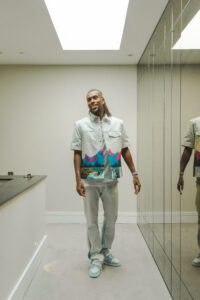
Born in Lagos of Nigeria, Iwobi was raised in London where his journey to the Premier League would begin, rising through the ranks at North London club Arsenal after joining as an eight-year-old.
The Gunners are known for producing well-dressed ballers. Joe Willock, Reiss Nelson and Serge Gnabry are just three examples and interest in fashion started young for those at Hale End, admits Iwobi. “Everyone had a look. At Hale End, in my age [group], everyone was looking to dress clean and making sure you take care of yourself with what you were wearing.”
“At that time, Chuba Akpom was the best-dressed. He got an adidas deal and he used to dress just adidas and he’d make it look sick. He had a high-top and high-tops were the thing at that time so he made it look wavey, so I’d say Chuba was the man with the drip back then.”
Though the ever-growing popularity of the Premier League allows many of its players to experience financial freedom, it wasn’t always as simple to purchase the latest trends for Iwobi: “When I was growing up, my Mum used to put me in GAP. If you had a GAP jumper at school, you were the man,” he says.
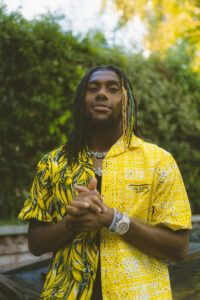
“At secondary school and at all the discos, if you had the latest astros and jeans, you were the man. K Swiss’ were a big thing back then too. If you had Prada or True Religion jeans, you were the man. But me? I just about made it to Lyle & Scott and Voi jeans. I couldn’t get the True Religions, if I did I was done, my Mum would have been angry at me.”
“I had a black Ralph Lauren tracksuit with the red horse but I remember I asked my Dad to get me one and he was like ‘yeah, no problem’. “I thought something was wrong, he came back with one and the horse was facing the wrong way,” he says holding back his laughter.
“I was like nahhh, it was mad! The jockey with the stick was bent, I said to my Dad ‘nah come on man, I’d rather you just get a plain shirt than a fake ting!’ But my parents tried for me, man.”
Iwobi’s appreciation for his family comes as no surprise. The Nigerian regularly has friends – who he now labels his brothers – stay over for days at a time and today is no different. “If we’re all in the house, it’s a battle for the speaker and whose music is the loudest,” he tells me.
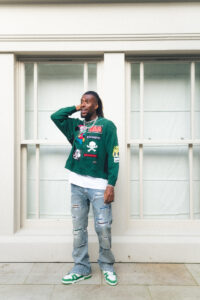
“Music is a big part of my life. I’m always listening to music. Every Friday, there’s a new album that comes out so I’ll listen to the latest tunes and then during the week it’s just on shuffle. My favourite track right now? I’m going to go with my anthem, 5500 Degrees by EST Gee, Lil Baby, Rylo Rodriguez and 42 Dugg.”
The conversation on music also presents the opportunity to find out what players are listening to behind closed doors aside from the usual rotation of Lil Baby, Gunna and Drake. The topic of guilty pleasures comes up and the presence of Iwobi’s friends provides a glimpse into his everyday personality.
“My guilty pleasure? Why you smiling?”, he says in the direction of his friend Michael who is watching on in the corner of the room: “You know what I’m going to say,” Michael responds with a grin on his face. “Go on, say it,” prompts Iwobi.
“You listen to Hannah Montana and that,” Michael says sending the room into laughter. “When’s the last time I listened to Hannah Montana?,” Iwobi fires back. “There are phases because obviously, it takes me back to my youth days if I listen to High School Musical songs or something.”
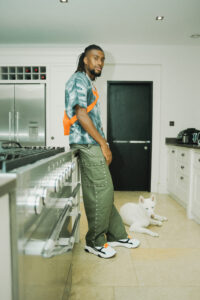
After taking a brief second to think of his ultimate guilty pleasure, he breaks into song: “Hey now, hey now,” he sings from Hilary Duff’s ‘What Dreams Are Made Of’. “That was a phase so yeah, I’ll go with Hilary Duff. At our grown ages you know,” he says shaking his head with a smile.
The increased demand from young football fans to see authenticity from athletes makes Iwobi a shining light in a sport filled with media-managed athletes and robotic personalities. Through his Instagram and Snapchat, Iwobi offers an insight into his life through daily uploads from the training ground, his home or when he’s out and about, giving his followers real-time access into the life of a footballer.
“I like to show that at the end of the day, I’m human and I’m just like everyone else. I do like to have a bit of fun, hence why I’m always with my people just bantering and vibing. Obviously, you have to take football seriously if you want to get to the top but you can have fun with it and that’s what I’m trying to show people really.”
One of the ways Iwobi has utilised his social media was through showcasing team-mate Dele Alli’s drip before his recent switch to Beşiktaş. The content, which saw Iwobi record the outfit worn by the former Tottenham midfielder at training each day, was loved by fans online with many weighing in their own opinion on each outfit. “A lot of people like to show off their personality through their fashion and Dele’s obviously one of them,” he says.
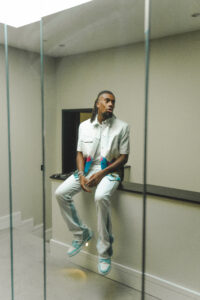
“He’s someone that likes to wear loud clothes and he’s a very expressive person. Nobody is safe in my changing room. If you come in the latest drip, if you come in too nice… Because I like to come to training chilled, so if you’re coming to training a bit ‘oooo’, I’ll be like ‘oooo, where are you going?!’ But Dele loves the cameras, he loves me to put it on him and he’s always asking me like ‘Alex, come on, fit of the day’, but it’s good, everyone should dress how they want to dress.”
One of the criticisms levelled at footballers with an interest in fashion is the lack of focus on the pitch, something Dele has had to deal with heavily in recent months and the likes of Héctor Bellerín and Dominic Calvert-Lewin have also been hit with the accusation in the past.
For Iwobi, it’s about finding a balance between football and outside passions. “As long as you’re able to get that balance, you can have those other interests,” he tells me. “Some pundits will not agree with it because once a player isn’t performing to the standards they’re capable of, that’s when people are like ‘ah, he needs to relax on these other habits and focus on football’.”
“At the end of the day, we are footballers and that’s what we’re paid to do, so people want us to do the best we can for the club but if you’re able to get the balance right, then explore and do whatever makes you happy.”
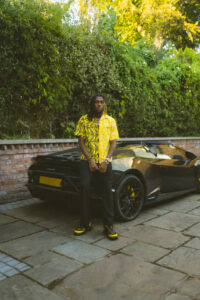
There’s a widespread belief in football that because of the fast cars, flashy jewellery and lavish lifestyles, players should be able to take the criticism and abuse sent their way without being affected. The ‘I’d take all the abuse in the world for that sort of money’ is a common line thrown around by many, which of course is a nonsensical ideology.
Amidst the pressures and constant demands of the game in addition to the personal life struggles we all suffer, it would be nigh-on-impossible for players to never find themselves in tough times mentally and Iwobi admits he too has found it difficult in the past. “My first couple of years with Everton, I went quiet on the media.”
“But now, with the help of Project 17, even if I’m going through bad times I’ll share that experience so people understand that it’s not always rosy, it’s not always a success story,” Iwobi reveals. “You have to go through difficult patches so that’s the only thing I’m trying to add. If I’m going through something, I can still voice it out to people.”
“Like I say, we are human. We do have emotions as well so it’s normal for us to go through mental battles. I feel like the more you’re able to speak on it and get help, the better. It’s never good to suffer in silence.”
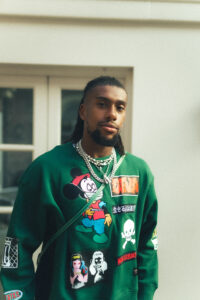
With football x fashion continuing to rise and luxury fashion brands tapping into young consumers through the use of football’s biggest stars, the NBA presents itself as a source of inspiration to many players given the fashion culture that exists in basketball. Pre-game fits, better known as tunnel fits, allow players to wear whatever they want as they arrive at each arena, encouraging the self-expression of athletes and the growth of the game by adding a new element to the sport.
In football, whilst there’s not believed to be any kind of definitive dress code, players usually rock tracksuits with club sponsors on and for the biggest games, most teams will arrive in suits. There have been early signs of it being introduced to football through Barcelona players such as Memphis Depay and Jules Koundé arriving at Camp Nou in outfits of their own choice of late and in the MLS, players regularly look to recreate the NBA culture.
Like Marcus Thuram, it’s something Iwobi would want to see in the game: “I enjoy the NBA when they walk in, I can’t lie. It looks sick. I’m sure the club want me to be coming in my tracksuit, but yeah I would go hard to games. I’d come how they [NBA players] come with their latest Goyard bags and all of that. The only thing that’s stressful would be making sure every week you’re patterned but apart from that, it looks sick and I enjoy it.”
“If they’re watching us, they must be bored sick of seeing tracksuits all the time,” Iwobi jokes. “But tunnel fits in football? I would like that.”

Spending time with Iwobi was yet another reminder of why the stereotype footballers are labelled with couldn’t be further from the truth. In a life full of financial freedom and the ability to buy most that he desires, he labels a bracelet gifted to him by his Mum as the most valuable piece of clothing/jewellery he possesses.
Having suggested we cut part of the shoot out to spend less time in his hair, he reassures me we could have more time to fulfil the original plan, despite having already spent considerable time in his home on a day he had also had training.
If the character of Iwobi was not already visible by this point, the thirty-minute lift he gave me to the hotel I was staying at – preventing an expensive taxi ride and an additional train journey into the centre of Manchester – hammered home his aforementioned point. He is human like everyone else, but an incredible one at that.
Imagery Shot By: Shane Bain
Styled By: Alexander Iwobi himself
Location: Manchester, England

